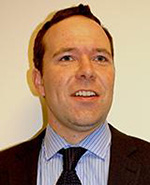
When am I going to recover? It’s a common question from patients, yet a difficult one for physicians to answer. In an effort to better predict recovery over time for patients who undergo spine surgery, Northwestern Medicine investigators are monitoring physical activity using Fitbit trackers in an ongoing study.
During the four weeks before a surgery and for six months afterward, the Fitbits will capture personal data on a patient’s steps and activity levels.
“An activity monitor allows us to have an objective, numerically exact and continuous measure of activity. This can show exactly how much function a patient has regained and, critically, when and if it occurs during the recovery period,” said Zachary Smith, MD, ’12 GME, assistant professor in Neurological Surgery and a principal investigator of the study. “This may allow us to predict when a patient will be back to 50 percent activity, 100 percent activity or even 200 percent activity in the future.”
Dr. Smith and colleagues have started enrolling patients and accumulating data, with promising preliminary results.
“We’ve already seen how surgery changes activity in our first patients,” he said. “It appears that almost all patients go through a four- to six-week period where their activity is decreased. Just over a month out from many of the surgeries, they get back to their pre-operative level. Then they slowly continue to climb to new levels of activity that they could never have reached before.”
The current study focuses on minimally invasive spine surgeries for degenerative disease and deformity, such as correcting scoliosis, but Dr. Smith plans to apply this physical activity monitoring approach to all spine operations in the future.
“We hope to integrate this into our practice so that it becomes a universal and accepted means of evaluating patients and evaluating our outcomes,” he said. “Most importantly, we hope to make patients more involved in their own self-evaluation, recovery and spinal health. I strongly believe that a motivated patient will get better results. Working hand-in-hand with our patients to improve our outcomes will only make us more effective.”
Feinberg investigators are conducting the study in collaboration with researchers from the University of California, San Francisco, and New York University. All three sites are funded by the International Spine Study Group, with additional support for Dr. Smith’s team provided by the Department of Neurosurgery.
If you are interested in participating in research at Northwestern University, please call the NU Study line at 1-855-NU-STUDY. Or get connected by visiting https://registar-prod.nubic.northwestern.edu to sign up for Northwestern’s Research Registry.






